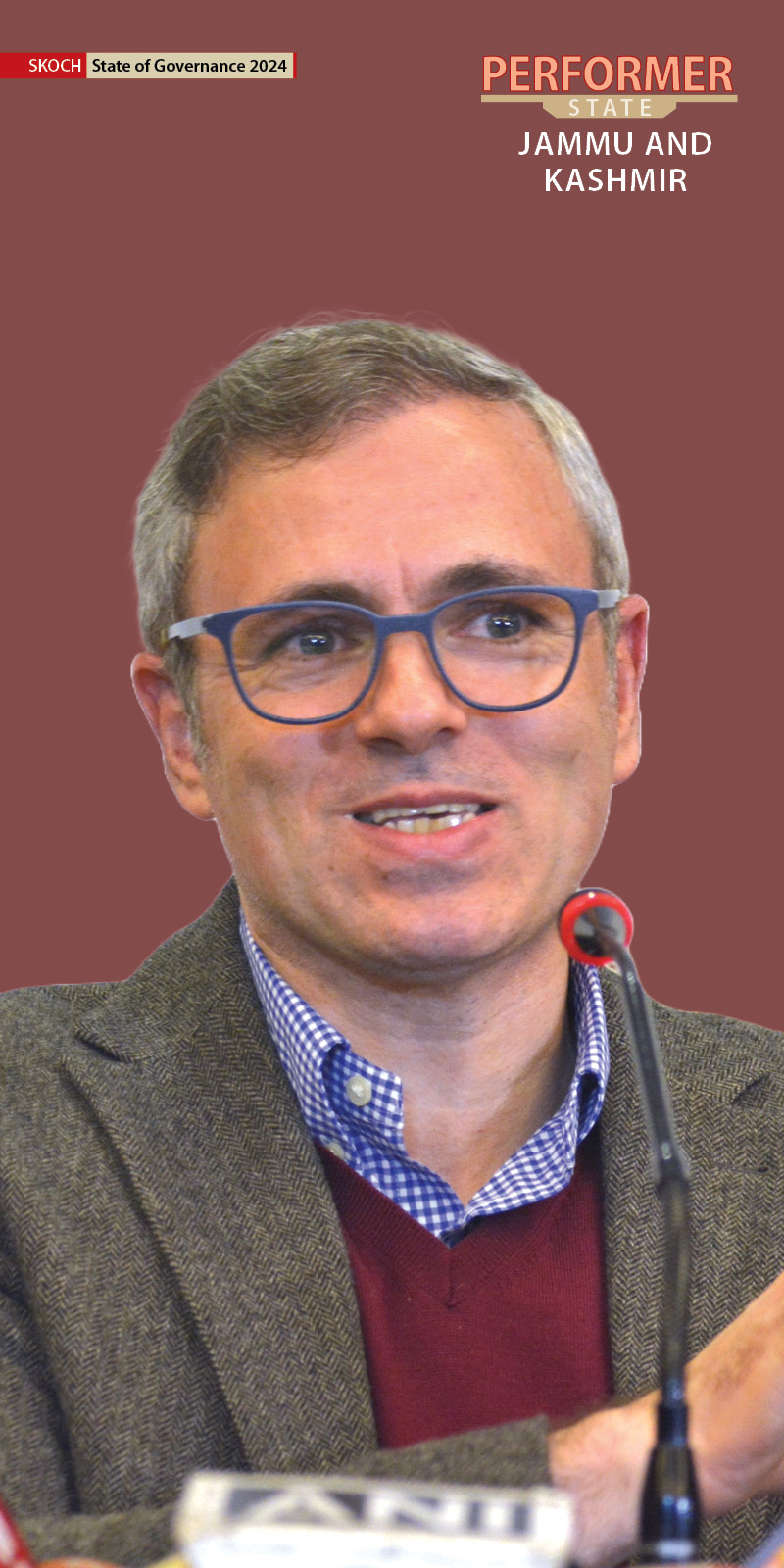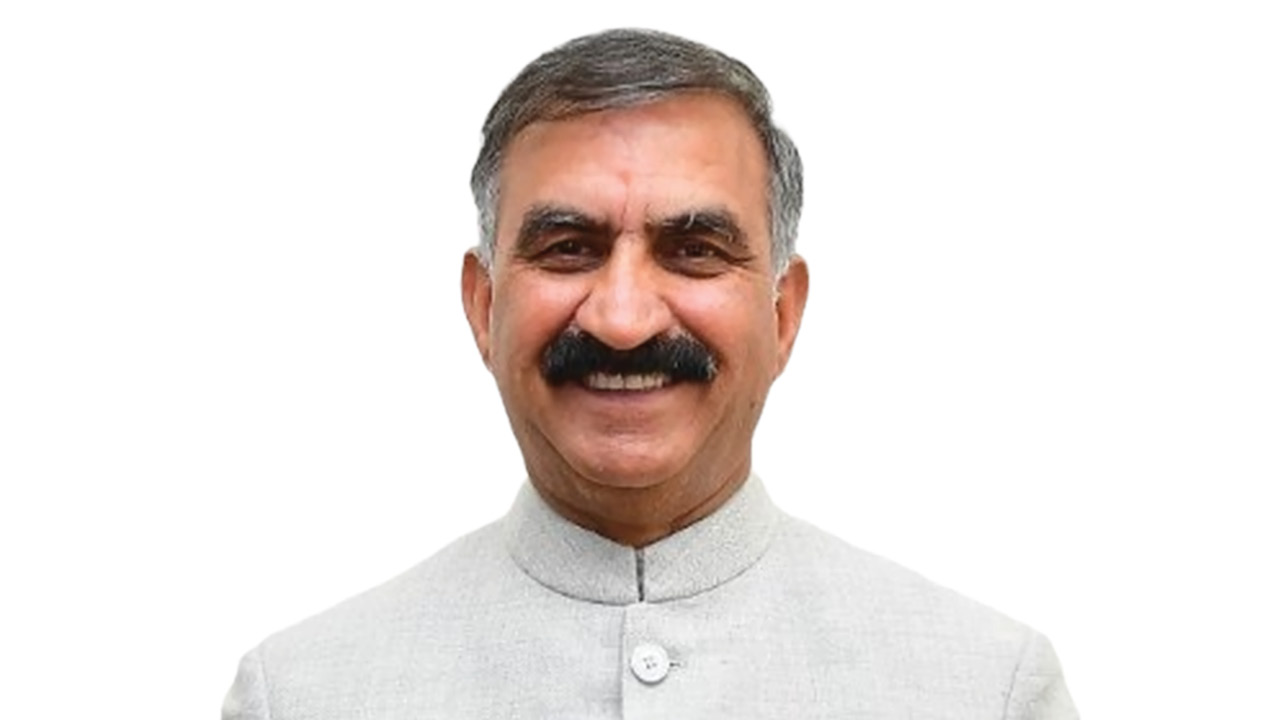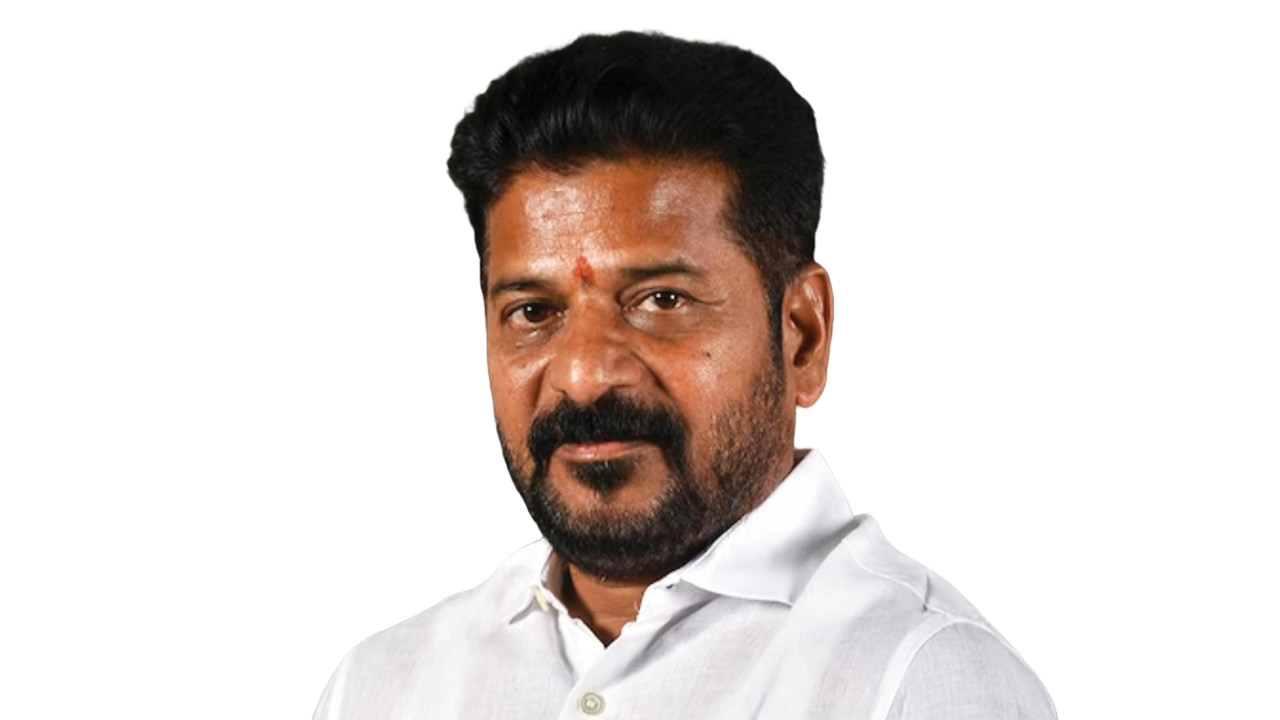Jammu & Kashmir has made a historic entry into the top-10 in the State of Governance Report 2024, securing the #10 national rank. This marks a significant governance breakthrough, reflecting the Union Territory’s strategic policy focus, improved service delivery and institutional reforms. With 15 well-performing projects, including three highly impactful and six impactful initiatives, Jammu & Kashmir has demonstrated remarkable progress across key sectors.
The UTs’ governance trajectory has been on a steady rise, with its latest ranking marking a major leap in governance performance. It now ranks #2 in District Governance, demonstrating its strength in decentralised governance and local administration reforms. In the Health sector, Jammu & Kashmir has improved from #8 in 2023 to #4 in 2024, showcasing successful health interventions and expanded access to healthcare services.
The Union Territory has topped the nation in the Sanitation category, while also achieving notable improvements in District Governance and Health. The UT has also secured the #2 rank in Agriculture, highlighting its resilient agrarian policies and increased farm productivity. Its re-entry into the e-Governance category at #3 nationally reflects its progress in digital governance and citizen service delivery enhancements.
UTs first-time participation in the Tourism sector resulted in an impressive #2 national ranking, highlighting its efforts to position the Union Territory as a leading tourism hub.
As shown in Figure 1, Jammu and Kashmir witnessed substantial improvements in District Governance, rising from 30.0% in 2023 to 33.3% in 2024. Municipal Governance also improved significantly to 13.3% in 2024. Sports (6.7%) and Tourism (6.7%) remained stable, reflecting a balanced governance approach across sectors.
While the governance improvements are commendable, fiscal sustainability remains a challenge. According to the NITI Aayog Fiscal Health Index 2025, Jammu & Kashmir faces constraints in revenue mobilisation and fiscal prudence, requiring enhanced resource allocation strategies and better financial management practices. The state must focus on optimising expenditure efficiency, diversifying revenue streams and reducing fiscal deficits to sustain long-term governance gains.
Several high-impact governance projects have been instrumental in driving Jammu & Kashmir’s transformation. The Holistic Agriculture Development Programme (HADP) has modernised the state’s agrarian economy, benefiting 13 lakh farmers and generating 2.88 lakh jobs, while initiatives like the Kisan Sathi Portal and Daksh Kisan Learning Management System have significantly improved agricultural service delivery.
The Healthcare Services and Access Programme in Poonch District, launched under the National Health Mission (NHM), has achieved 100% institutional deliveries and child immunisation, alongside 98% ABHA Card and 86% Golden Card registrations, ensuring universal health coverage.
The J&K Homestay Rules and Guidelines 2022 have promoted rural tourism development, creating 2,000 registered homestays and boosting economic opportunities for local communities.
To maintain its top 10 ranking and aim for a higher governance position in 2025, Jammu & Kashmir must expand its high-impact governance initiatives and increase district-level participation. Strengthening digital governance, infrastructure development and fiscal sustainability will be key to ensuring the Union Territory’s long-term governance leadership and socioeconomic transformation.
State's Performance in Different Sectors in Three Years
| Sector | 2024 | 2023 | 2022 |
|---|---|---|---|
| Sanitation | 1 | ||
| Sports & Youth | 1 | 1 | |
| Agriculture | 2 | ||
| District Administration | 2 | 6 | 18 |
| Tourism | 2 | ||
| e-Governance | 3 | 8 | |
| Health | 4 | 8 | 5 |
| Rural Development | 5 | 3 | 4 |
| Municipal Governance | 10 | 10 |
Sustainable Transport System of Srinagar City
The Sustainable Transport System of Srinagar City, launched on 24 January 2022, by Srinagar Smart City Limited, focuses on reducing pollution and enhancing mobility. Key initiatives include developing 100 km of Complete Streets, deploying 100 electric buses on 15 routes and introducing 1,200 bicycles for public use. Outcomes include a 43% increase in non-motorised transport share, 2,304 metric tons of carbon emission reduction and over 3 million passenger trips on e-buses. The project improves air quality, mobility and urban liveability.
Holistic Agriculture Development Programme (HADP)
The Holistic Agriculture Development Programme (HADP), launched on 19 April 2023, is a transformative initiative by the Agriculture Production Department, Jammu & Kashmir. With a five-year budget of₹5,013 crore, it aims to address the challenges in agriculture and allied sectors, ensuring a sustainable and technology-driven agro-economy.
The programme focuses on empowering 13 lakh farming families, including 3 lakh marginalised households, while creating 2.88 lakh jobs and establishing 18,861 enterprises. Key interventions include the Kisan Sampark Abhiyan, which reached 8 lakh farmers across 287 blocks and the Daksh Kisan Learning Management System, offering 121 skill courses to over 1.32 lakh farmers. Additionally, the Kisan Sathi portal facilitated efficient application processing, with 218,276 applications approved, enhancing transparency and service delivery.
HADP has achieved remarkable results in its first year: production of 18,743 MT of certified seeds, establishment of 95 hi-tech polyhouses and the creation of 67,000 MT of Controlled Atmosphere storage. Furthermore, value chain development, increased cropping intensity and niche crop cultivation are driving economic growth. This programme’s innovative governance model, including a four-tier implementation structure, ensures robust execution and scalability. HADP sets a benchmark for inclusive growth and has inspired similar initiatives in other states like Bihar.
Healthcare Services and Access
The Healthcare Services and Access Programme in Poonch District, Jammu & Kashmir, launched under the National Health Mission (NHM) on 1 May 2013, has redefined healthcare delivery in the region. Designed to improve primary healthcare, maternal and child health and digital access to medical services, the programme aims to ensure equitable and efficient healthcare for all residents.
The programme’s impact is reflected in its 100% institutional delivery rate and 100% child immunisation for children up to 23 months, achieving all targets for maternal and child health indicators. Additionally, 98% ABHA Card creation and 86% Golden Card registrations under the PMJAY/SEHAT scheme ensured free health coverage of up to₹5 lakh annually, positioning Poonch as the top-performing district in Jammu & Kashmir. Leveraging digital tools like the IHIP-IDSP Disease Surveillance System, the programme achieved 100% data reporting accuracy, enhancing transparency and decision-making.
Despite facing challenges such as manpower shortages and infrastructure gaps, the initiative overcame these through community-driven solutions, such as mobile health awareness camps and partnerships with CSCs (Common Service Centers) to increase outreach. Recognised by the Lieutenant Governor in 2023 for its outstanding performance, the programme exemplifies the potential of targeted, data-driven healthcare reforms. This initiative showcases how robust implementation, combined with digital innovation and inclusive strategies, can transform healthcare delivery in underserved regions, setting a benchmark for replication across India.
Good Governance Project
The Good Governance Project, initiated on 15 September 2022, by Jammu Smart City Ltd, leverages digital solutions for efficient municipal services. Key achievements include a 50% reduction in grievance response times, a 75% decrease in littering through QR-based waste management and a 30% revenue boost from online payments. The ‘My Jammu App’ achieved a 70% adoption rate, improving citizen satisfaction by 40%. The initiative enhances transparency, accountability and urban governance, benefiting 800,000 residents.
AB-PMJAY Sehat Services
The AB PMJAY Sehat Services, initiated on 18 November 2018, by the Health Department, Jammu & Kashmir, provides free healthcare coverage of₹5 lakh per family annually. The project has treated 29,558 patients across public and private empaneled hospitals, addressing critical services like surgeries and dialysis. It ensures zero out-of-pocket expenditure for beneficiaries and strengthens public healthcare infrastructure with improved diagnostics and IPD services. By achieving 94% beneficiary saturation, the initiative promotes equitable access to quality healthcare.
eUNNAT
The eUNNAT Project, launched on 14 July 2022, by the Information Technology Department, Jammu & Kashmir, integrates 1,164 government services onto a unified digital platform. It ensures real-time grievance redressal, auto-appeal mechanisms and e-payment gateways for citizens. Over 1 million beneficiaries have accessed services through the platform, reducing manual interventions and physical visits. The project also launched the Mobile Dost app, extending services to remote areas. Outcomes include enhanced accessibility, improved service efficiency and greater transparency in governance.
Figure 1: Sectors with Enhanced Focus - Jammu and Kashmir

Implementation of J&K Homestay Rules
The J&K Homestay Rules and Guidelines, 2022, implemented by the Department of Tourism, Jammu & Kashmir, aim to integrate local communities into the tourism ecosystem while promoting sustainable practices. Launched on 30 June 2022, the initiative focuses on empowering rural households, preserving cultural heritage and expanding affordable accommodation options.
In its first phase, the programme registered over 2,000 homestays, creating a network of 20,000 beds, particularly in remote areas like Gurez and Karnah. This effort attracted nearly one lakh visitors, boosting rural tourism. The project promotes cultural exchange and economic opportunities by training homestay owners and Authorised Tourist Officers (ATOs) to enhance hospitality skills. Additionally, community-driven workshops addressed infrastructural gaps and hesitance among locals.
The initiative also achieved measurable outcomes, including a multiplier effect on the local economy, increased sales of traditional crafts and significant employment generation. It has decentralised tourism benefits and made travel affordable for extended stays, providing homely atmospheres with cultural immersion.
By addressing challenges such as unawareness and registration access, the programme has become a model for inclusive tourism. Future plans include expansion to border areas, adding organic farming components and infrastructure upgrades.
Swachh Teerth Mission
The Sustainable and Zero Landfill Shri Amarnathji Yatra 2023, led by the Department of Rural Development and Panchayati Raj, Jammu & Kashmir, focused on eco-friendly waste management for over 5 lakh pilgrims. The initiative processed 350 tons of waste through 13 solar-powered waste processing plants, reducing waste by 30% compared to 2022. It introduced the world’s first renewable energy-powered langar, biogas plants for organic waste conversion and advanced fecal sludge management, protecting rivers and preventing pollution. Behavioural change campaigns, free cloth bag distribution and clean toilets along the route enhanced sustainability, creating a scalable model for green pilgrimages.




